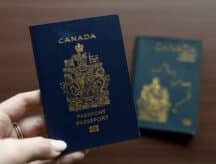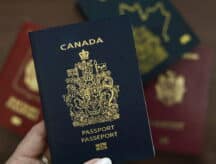How Canadian citizenship processes may change in the future
A recent immigration department self-evaluation highlights areas where Canadian citizenship processes could be improved.
The report, released in November, revealed Immigration, Refugees and Citizenship Canada's (IRCC) findings and recommendations on how to address issues in the citizenship program.
As it is now, permanent residents can apply for citizenship if they have lived in Canada for at least three years, among other eligibility requirements. Generally, citizenship applicants must pass a citizenship test, or interview, and prove their language skills in English or French.
IRCC's self-evaluation covered the period from 2013 to 2018, with previous years taken into consideration. It was done as part of an accountability measure with the Treasury Board, which oversees the funding of federal departments, including IRCC.
Find out if you’re eligible for Canadian immigration
They found that out of the more than 2.8 million permanent residents who came to Canada between 2005 and 2015, 50 per cent were citizens by December 31, 2018. A further 7 per cent had applied for citizenship. This is not to be confused with Canada's citizenship rate, or the percentage of permanent residents who become citizens, which was about 86.2 per cent in 2016. Most permanent residents who get citizenship are motivated by the desire to feel fully Canadian, and to make Canada their permanent home.
Although most permanent residents get citizenship status, citizenship rates vary for different populations. More recent immigrants are seeing a slower citizenship rate, suggesting that people are taking longer to become citizens.
Here is an overview of IRCC's recommendations on how to improve the current citizenship process.
Cost of citizenship should be addressed
While increases to the application fee over the evaluation period did not have a major impact on overall uptake, IRCC noticed that it was a barrier for certain immigrants. Refugee and families with lower incomes were particularly affected.
Currently, there is no flexibility around citizenship application fees. They run about $630 for adults and $100 for minors under age 18.
IRCC wrote that there is a need to re-examine the fee structure to allow equitable access to citizenship.
In the 2019 federal election campaign, the Liberal Party promised to axe citizenship fees. They have not yet delivered on this promise.
More transparency for knowledge and language exemptions
People who are facing socio-economic challenges in Canada also face barriers to citizenship with the current knowledge and language requirements.
IRCC found that meeting these two requirements can be difficult, particularly for refugees and people with low language proficiency and education. These requirements can be waived on compassionate grounds, but the parameters are not well-defined for these cases. As a result, most waivers end up being issued on a medical opinion.
Waivers have to be requested by applicants, but the process is difficult to navigate and not well-known. There were very few waivers requested during the evaluation period.
Improve language verification process
IRCC found that the range of evidence accepted for language verification is very broad and does not always reflect the applicant's actual language ability. It can be difficult for immigration officers to assess language ability, as the tools in place are subjective. Furthermore, officers themselves are not formal assessors.
In light of these findings, IRCC recommended creating a strategy to equip officers to validate language evidence and provide better support to assess language ability when needed.
New approach for knowledge requirement
The knowledge test and study guide have higher language level requirements than the actual language test itself. As such, IRCC found that there is a need for more tools and support for applicants.
IRCC is therefore continuing with its plan to implement a new approach for the knowledge requirement. This could include a revised study guide or other tools to improve the accessibility of the required information.
Promote active engagement in Canadian communities
Immigrants who become citizens, generally, have positive integration outcomes. Many feel a sense of belonging to Canada, and their community. They have social connections, and confidence in Canadian institutions. Many perform well economically, and participate in volunteer organizations.
These findings suggest that permanent residence with stronger feelings of connection to Canada have more of a desire to become Canadian.
There was a difference found in employment earnings between citizens and permanent residents, but this was attributable to the socio-economic characteristics of the individual and not due to residency status. Volunteering and group membership also varied by people's socio-economic situation, but citizens were more likely to participate than permanent residents. Permanent residents who did not intend to apply for citizenship were the least likely to engage in these activities.
These types of community engagement are at the core of the citizenship program objectives, however, IRCC has limited mechanisms in place to influence these outcomes. Most of IRCC's citizenship promotion activities are currently focused on newcomers.
Find out if you’re eligible for Canadian immigration
© CIC News All Rights Reserved. Visit CanadaVisa.com to discover your Canadian immigration options.
- Do you need Canadian immigration assistance? Contact the Contact Cohen Immigration Law firm by completing our form
- Send us your feedback or your non-legal assistance questions by emailing us at media@canadavisa.com







